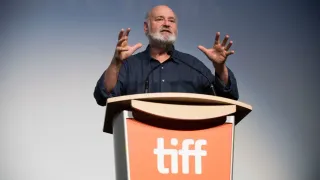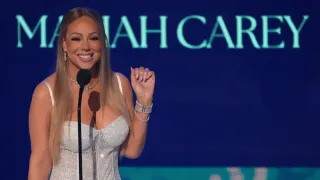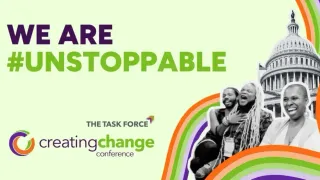February 6, 2018
Meet the Man Behind 'The Menopausal Mermaid'
Robert Nesti READ TIME: 7 MIN.
When Michael Gaucher performed with Fresh Fruit, the drag quartet that held court every year in various venues in the city for more than a decade, he looked he was up to something mischievous. There was always a glint in his eye and a sly smile on his face, but I wouldn't necessarily call it acting. That's Michael, whom you may also recognize in his bartending duties at Club Caf� in Boston or the Boatslip in Provincetown. He's always there with a warm greeting, as well as a snarky quip.
This month he brings "The Menopausal Mermaid," his latest creative endeavor, to Club Caf� for a run on the weekends over the next six weeks. For years Gaucher contributed to the skits and songs of Fresh Fruit, but with this show he takes on writing a full-length musical in addition to directing a cast of fresh faces. Taken from the popular Disney film, the show promises "a kaleidoscope of fantastic drag, sexy sailors, outrageous costumes, and all your favorite 80s disco tracks reimagined and served up hot."
EDGE caught up with Gaucher recently for a quick Q&A about the show.
Contrary by Nature
EDGE: How did the Menopausal Mermaid come about?
Michael Gaucher: It was a combination of tequila and the matriarchy. I was on Plum Island with my mother having margaritas while taking some sun. Off in the distance, I could see a young girl playing in the waves dressed as Ariel. I said to my mother, "Look, it's the Little Mermaid," to which she wryly replied, "What does that make me? The Menopausal Mermaid?" And a legend was born.
EDGE: Is this the first full-scale musical you have written?
Michael Gaucher: That's a tough one. I wrote songs all the time when I was a member of Fresh Fruit. Who can forget "Asian Driver?!" However, if you're talking about a musical with characters and plot lines and narrative arcs and all THAT, then yes, this is the first.
EDGE: What is your inspiration?
Michael Gaucher: Ask anyone who knows me and they will tell you I'm contrary by nature. If someone says something is X, I'll give you all the reasons why I think it is Y. This is especially true of many unquestioned social constructs such as family, love, relationships, etc. I love to take the status quo and turn it on its head, and who represents the status quo for women, or any other marginalized populations for that matter, than Ariel.
Subverting an Icon?
EDGE: Can this be a subversive take on a family-friendly Disney icon?
Michael Gaucher: Definitely. Ariel, as she was conceived by Disney, represents all the things women/girls are supposed to be: beautiful, self-sacrificing, silent, all in service to a man under the mantle of love. If one takes away the kitschy songs and animation, what you see if a girl willing to mutilate herself, to amputate part of her body, to give up her voice, just to be with a man; and yet parents around the world are buying Ariel costumes for their little girls and encouraging the undersea princess as their ideal. The inconsistencies are staggering.
EDGE: This might seem an odd question, but are there any autobiographical elements in it?
Michael Gaucher: Indeed, although I feel it's more reflective of common experiences of any marginalized groups rather than my own specific life. Ariel is told she must change in order to get the things that are freely given to others. This is a common experience of gay people everywhere. You must change - be more butch, femme, straight acting, buff, - in order to get the man, the girl, the job, accepted. What Ariel returns to tell us is her experience of changing for others and whether it was worth sacrificing herself in order to be recognized by others.
EDGE: As a performer with Fresh Fruit for years, what is it like to be on the other side of the footlights as a writer and director?
Michael Gaucher: I miss being on stage - what is it Ann Baxter says in "All About Eve?" "Applause, it's like waves of love coming over the footlights." I thought about playing the lead role, but I needed people that could actually sing, and for anyone who ever came to a Fresh Fruit show knows, my one-note range was not going to cut the demands of the part. So I focused on the writing - which I love - and the cast I assembled has made directing a breeze.
Like Old Times?
EDGE: What was the casting process like?
Michael Gaucher: The casting process was a lot of fun and so rewarding. You forget - being a bit further along the age trajectory - the sheer enthusiasm of youth. The sailors - Josh, Paxton, and Brian - their excitement, their drive is infectious. When I first met them you could really see the show taking place because you started to envision the parts - the characters - brought to life by these men. Paxton as Ursula! Josh as Eric! Brian dancing his way across the stage! Each one of them is a delight. You can see their pictures and read all about them at






